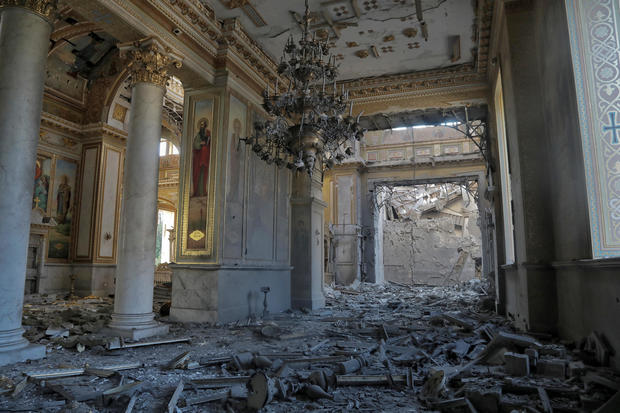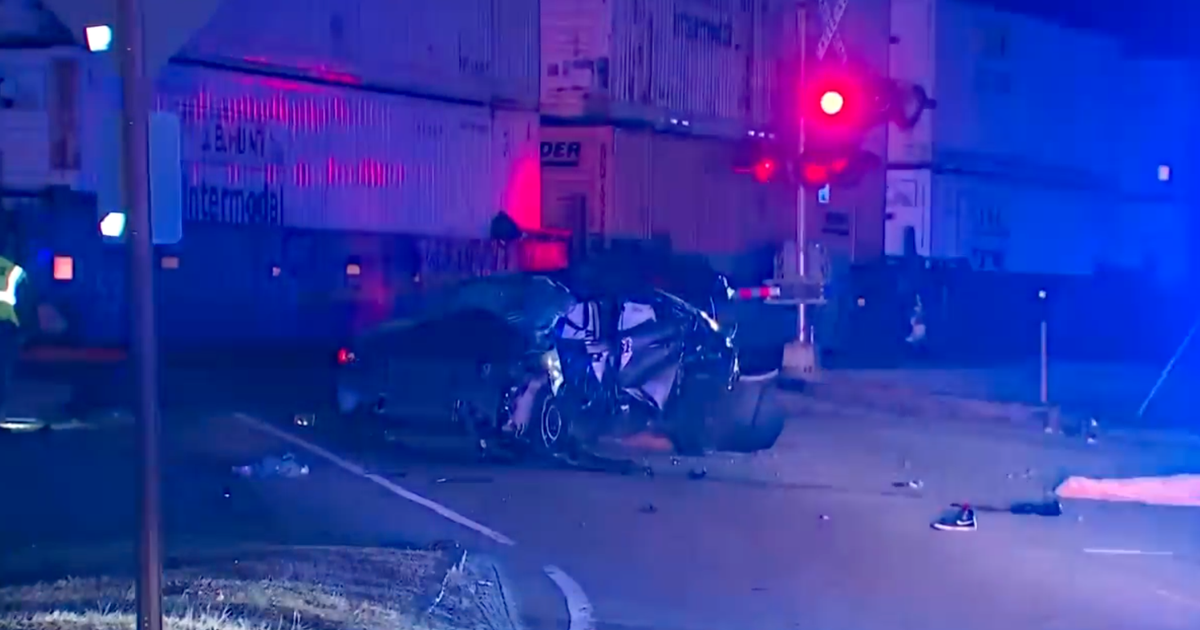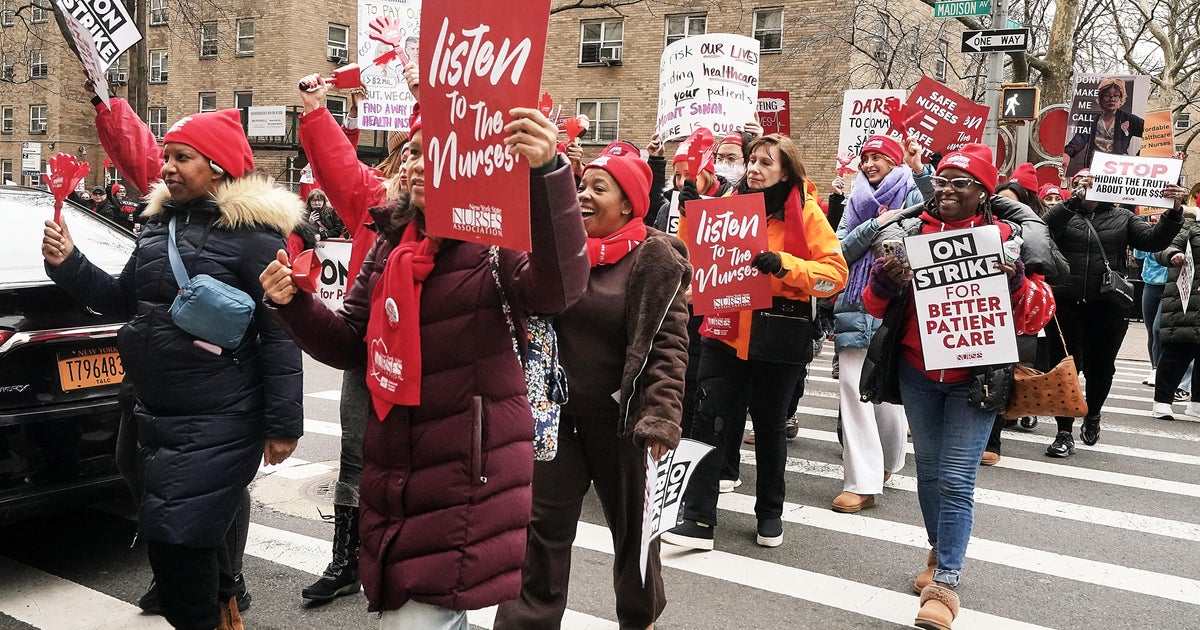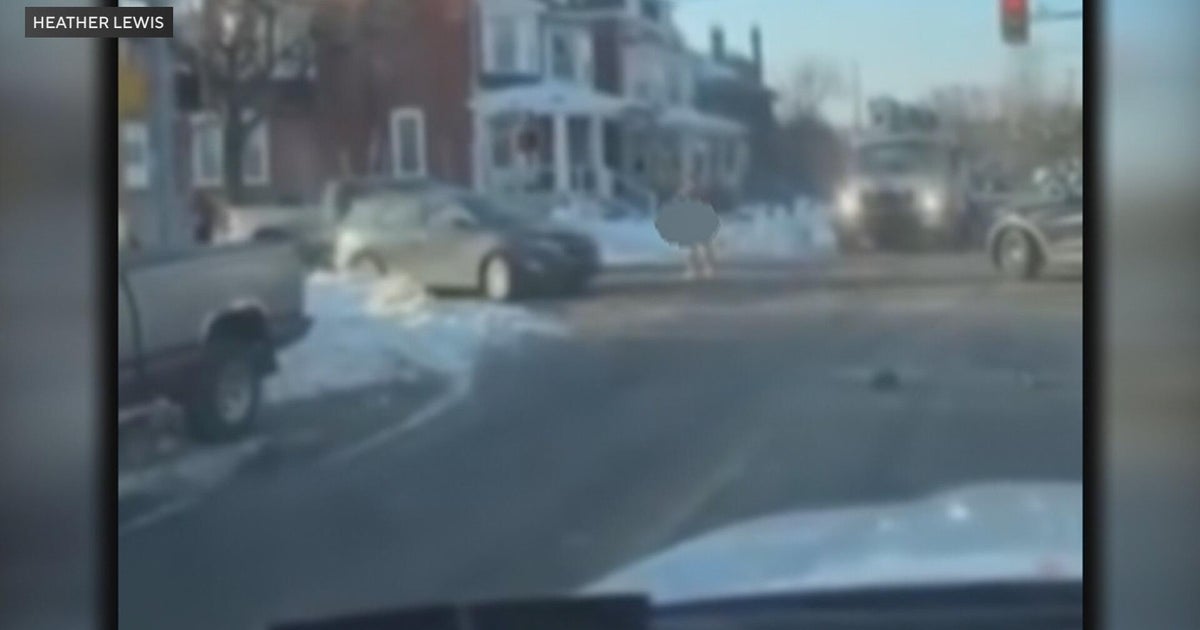Russian missile strikes hit Ukrainian city of Odesa, killing at least 1 and damaging historic cathedral
Russia struck the Ukrainian Black Sea city of Odesa again on Sunday, local officials said, keeping up a barrage of attacks that has damaged critical port infrastructure in southern Ukraine in the past week. At least one person was killed and 22 others wounded in the attack in the early hours.
Regional Gov. Oleh Kiper said that four children were among those wounded in the blasts, which severely damaged the historic Transfiguration Cathedral, a landmark Orthodox cathedral in the city.
Ukraine's Air Force reported on Telegram that Russia had launched 19 missiles against the Odesa region, including five high-precision winged Onyx missiles and four sea-to-shore Kalibr cruise missiles. It said that Ukrainian air defense had shot down nine of the missiles.
According to BBC News, Kiper wrote on Telegram that six residential buildings, including apartment buildings, were destroyed by the strikes. "Odesa: another night attack of the monsters," Kiper wrote on Telegram, according to BBC.
Russia has been launching persistent attacks on Odesa, a key hub for exporting grain, since Moscow canceled a landmark grain deal on Monday amid Kyiv's grinding efforts to retake its occupied territories.
In one such case in downtown Odesa, some people became trapped in their apartments as a result of the damage caused by the attack, which left rubble strewn in the street and partly blocking the road, and damage to power lines.
Svitlana Molcharova, 85, was rescued by emergency service workers. But after she received first medical aid, she refused to leave her destroyed apartment.
"I will stay here," she said to the emergency service worker who advised her to leave.
"I woke up when the ceiling started to fall on me. I rushed into the corridor," said Ivan Kovalenko, 19, another resident of the building. He came to Odesa having fled the city of Mykolaiv in search of a safer place to live after his house was destroyed.
"That's how I lost my home in Mykolaiv, and here, I lost my rented apartment. "
In his home, the ceiling partially collapsed, the balcony came off the side of the building, and all the windows were blown out.
The Transfiguration Cathedral, one of the most important and largest Orthodox Cathedrals in Odesa, was severely damaged.
In a video posted to social media by the city council, Mayor Gennadiy Trukhanov could be seen walking through rubble inside the church, BBC News reported.
After the fires were put out, volunteers donned hard hats, shovels and brooms at the cathedral to begin removing rubble, combing through to salvage any church artifacts — under the watchful gaze of the saints whose paintings remained intact.
Local officials said that the icon of the patroness of the city had been retrieved from under the rubble.
"The destruction is enormous, half of the cathedral is now roofless," said Archdeacon Andrii Palchuk, as cathedral workers brought documents and valuable items out of the building, the floor of which was inundated with water used by firefighters to extinguish the fire.
Palchuk said the damage was caused by a direct hit from a Russian missile that penetrated the building down to the basement and caused significant damage. Two people who were inside at the time of the strike were wounded.
"But with God's help, we will restore it," he said, bursting into tears.
The cathedral belongs to the Ukrainian Orthodox Church, which has been accused of links to Russia. The church has insisted that it's loyal to Ukraine, has denounced the Russian invasion from the start and has even declared its independence from Moscow.
But Ukrainian security agencies have claimed that some in the Ukrainian church have maintained close ties with Moscow. They've raided numerous holy sites of the church and later posted photos of rubles, Russian passports and leaflets with messages from the Moscow patriarch as proof that some church officials have been loyal to Russia.
Odesa's historic center was designated an endangered World Heritage Site by UNESCO earlier this year despite Russian opposition.
Russia's Defense Ministry said Sunday that Russian forces had attacked sites in Odesa, "where terrorist acts against the Russian Federation were being prepared."
The ministry said in a statement that the strikes were carried out with sea- and air-based long-range high-precision weapons, and that there are "foreign mercenaries" at the targeted sites.
In a later statement, the ministry denied that its attacks had struck the Transfiguration Cathedral, claiming that the destruction of the cathedral was likely due to "the fall of a Ukrainian anti-aircraft guided missile."
In contrast to Russia's claims, the Ukrainian Orthodox Church said that the attack had been a direct strike, writing on Facebook that "a Russian rocket hit the central altar."
Earlier Russian attacks this week crippled significant parts of export facilities in Odesa and nearby Chornomorsk and destroyed 60,000 tons of grain, according to Ukraine's Agriculture Ministry.
The attacks come days after President Vladimir Putin pulled Russia out of the Black Sea Grain Initiative, a wartime deal that enabled Ukraine's exports to reach many countries facing the threat of hunger.
Putin vowed to retaliate against Kyiv for an attack Monday on the crucial Kerch Bridge linking Russia with the Crimean Peninsula, which the Kremlin illegally annexed in 2014.
In other developments:
– Russian President Vladimir Putin and Belarusian President Alexander Lukashenko were meeting on Sunday in St. Petersburg, two days after Moscow warned Poland that any aggression against its neighbor and ally Belarus would be considered an attack on Russia.
– Putin announced at the start of the meeting that talks would also take place on Monday, and declared that Kyiv's counteroffensive had failed.
– Lukashenko said that Wagner troops, who launched joint drills with the Belarusian military on Thursday, almost a month after their short-lived rebellion against Moscow, wanted to go west "on an excursion to Warsaw, to Rzeszow" in Poland, but that Belarus would not allow them to relocate.
– Kharkiv regional Gov. Oleh Syniehubov reported Sunday morning that two people were killed in Russian strikes on the northeastern province on Saturday, when Russia attacked populated areas of the Kharkiv, Chuhuiv, Kupiansk and Izium districts.
– Donetsk regional Gov. Pavlo Kyrylenko said Sunday that four residents of the eastern region were killed and 11 wounded in attacks the previous day.




